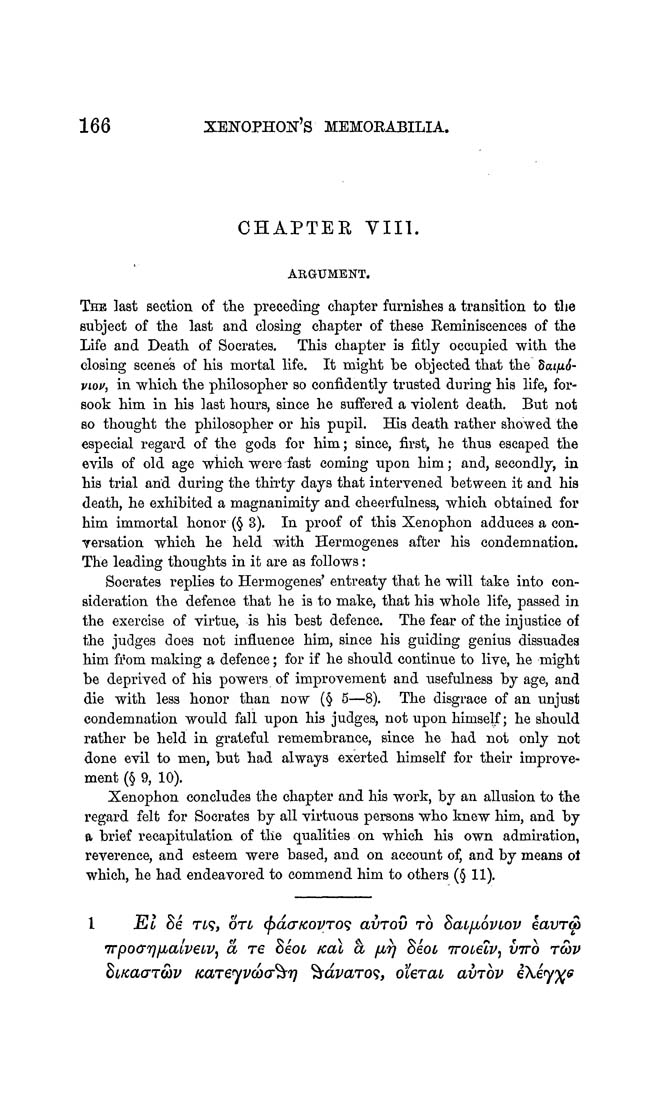166 xenophon's memoeabilia.
CHAPTER VIII.
ARGUMENT.
The last section of the preceding chapter furnishes a transition to the
subject of the last and closing chapter of these Eeminiscences of the
Life and Death of Socrates. This chapter is fitly occupied with the
closing scene's of his mortal life. It might be objected that the dai/j-S-
piop, in which the philosopher so confidently trusted during his life, for¬
sook him in his last hours, since he suffered a violent death. But not
so thought the philosopher or his pupil. His death rather showed the
especial regard of the gods for him; since, first, he thus escaped the
evils of old age which were fast coming upon him; and, secondly, in
his trial and during the thirty days that intervened between it and his
death, he exhibited a magnanimity and cheerfulness, which obtained for
him immortal honor (§ 3). In proof of this Xenophon adduces a con¬
versation which he held with Hermogenes after his condemnation.
The leading thoughts in it are as follows:
Socrates replies to Hermogenes* entreaty that he will take into con¬
sideration the defence that he is to make, that his whole life, passed in
the exercise of virtue, is his best defence. The fear of the injustice of
the judges does not influence him, since his guiding genius dissuades
him from making a defence; for if he should continue to live, he might
be deprived of his powers of improvement and usefulness by age, and
die with less honor than now (§ 5—8). The disgrace of an unjust
condemnation would fall upon his judges, not upon himself; he should
rather be held in grateful remembrance, since he had not only not
done evil to men, but had always exerted himself for their improve¬
ment (§ 9, 10).
Xenophon concludes the chapter and his work, by an allusion to the
regard felt for Socrates by all virtuous persons who knew him, and by
a brief recapitulation of the qualities on which his own admiration,
reverence, and esteem were based, and on account of, and by means ot
which, he had endeavored to commend him to others (§ 11).
1 El Si Tts, OTt cpdaKovTOs avTov Tb Satptovtov eavT&
Trpoayptaivetv, d Te Siot Kal d pty Siot Trotelv, VTrb t&v
StKaaT&v KaTeyv&a^y ^dvaTOs, oteTat avTbv iXiyx^
|








